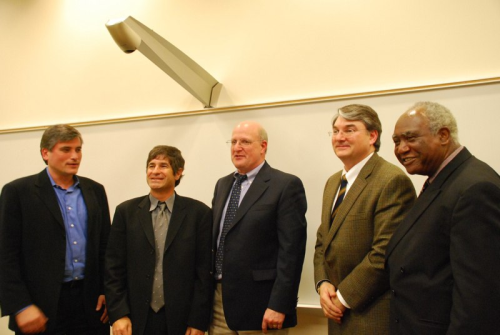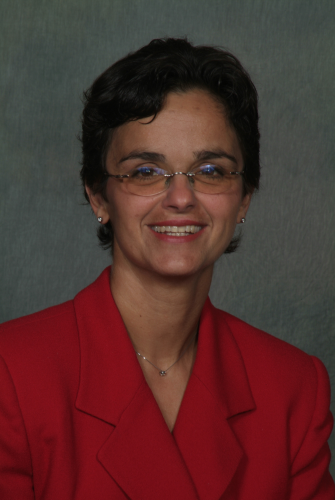Oct 22, 2008
New DePaul University Graduate Degree Will Produce Economic Policy Problem-Solvers
New DePaul University Graduate Degree Will Produce Economic Policy Problem-Solvers
Efforts to address the worldwide financial crisis have boosted demand in at least one area – the market for economic analysts. Government agencies at all levels, corporate-government relations offices, trade and business development organizations and nonprofits need these problem-solvers more than ever before to help guide them through the economic uncertainty ahead.
DePaul
Another element of the program—Congressional research fellowships in economic analysis—begins in January. Students will gain valuable experience working for members of the
“We’ve seen quite a bit of student interest in this field,” said Gabriella Bucci, associate professor of economics at DePaul, who directs the new program. “Economics is so linked to public policy that this distinctive approach makes sense. The degree is an ideal combination of economic theory, policy analysis and hands-on experience with policy-makers that will allow our students to graduate to good jobs through the network of contacts that DePaul has developed in
Students enrolled in the program will learn to collect, configure and interpret policy-related economic data. To earn a degree, they will be required to complete 13 courses in micro- and macroeconomics, economic research methods, international trade and public policy. Two of the courses are electives that can be fulfilled either through the graduate fellowship on Capitol Hill, or two courses in a number of subjects, including economic forecasting, labor economics, regional and urban economics, international macro-economics and the economics of developing countries. The flexible and practical program is available in a full-time format, ideal for recent college graduates and career-changers, and in a part-time track for students who want to continue working full time while attending evening classes.
“DePaul’s program is part of a trend toward a more applied approach to studying economics,” said Thomas Donley, chair of DePaul’s economics department. “It allows students to be more competitive in the job market after earning their master’s degrees while still providing the option for them to pursue a Ph.D. in economics if they choose to do so.”
Sarah Crews, a 22-year-old senior from Palatine, is currently taking a course in economic research methods for policy analysts and will start a fellowship in January with Rep. Danny Davis (D-Ill.) in
“Like most of my peers, I decided that I wanted to make a difference in my community and in my country,” she said. “Why not do that through economics? Being a person who enjoys a good challenge, I look forward to finding better answers to the toughest policy questions.
“My dream post-masters job is to work at the Federal Reserve, as I have always been fascinated by monetary policy,” she said. “The program will help me enter the workforce a confident and capable economist.”

Faculty from DePaul’s new master’s degree in economics and policy analysis program and U.S. Rep. Danny K. Davis (D-Ill.) hosted a panel discussion about the financial rescue package that attracted 200 people this fall. The panelists were (left to right): John Miller, clinical assistant professor, University of Illinois at Chicago; Robert Kallen, visiting professor of economics, DePaul; Michael Miller, associate professor of economics, DePaul; Loreto Peter Alonzi, professor of economics and finance, Dominican University; and Davis. (Photo: Kathy Hillegonds)

Gabriella Bucci, who heads the new degree program in economics and policy analysis at DePaul, said student interest in entering this field has increased.
